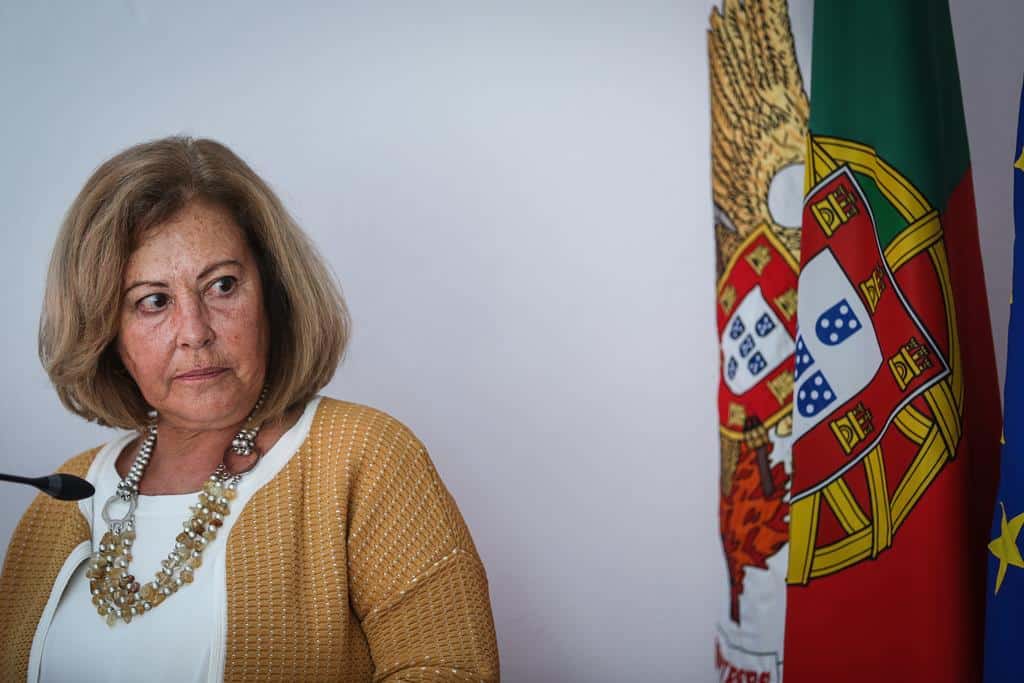“Zero tolerance” for movements currently abandoning traditional syndicates
With ‘hundreds’ of police agents described as abandoning syndicates following this week’s pay deal with the government, minister for internal affairs Margarida Blasco has announced her next step will be a purge of “radical movements” within the country’s police forces.
In an interview with Diário de Notícias and TSF radio, Ms Blasco said she is focusing on training to “remove the rotten fruit” from Portugal’s security forces.
“Police officers are citizens, but not just any citizens. They are citizens who defend public order, they defend the citizens. They are one of the pillars of democracy and the rule of law. It is not acceptable for there to be radical movements within the security forces,” she told her interviewers.
Indeed, she said she believes this type of movement “will disappear quickly”, as training is being given that will “remove the rotten fruit from the great basket that is the security forces.
“Excuse this image, but it’s for filtering,” she added.
Margarida Blasco appreciates the fact that the security forces refused to allow themselves to be ‘used by CHEGA’ when the right-wing party requested their presence in parliament last week.
“In a universe of 45,000 police officers, the main trade union organisations came out to say that they didn’t feel bound (by the request), that they didn’t want to be instrumentalised,” she acknowledged.
But nonetheless, hundreds of police DID turn up – and it is these, by inference, that the minister appears to view as the “rotten fruit in the great basket”.
Asked about human rights training, a concern she had as Inspector General of Internal Affairs (IGAI), Margarida Blasco said that “a lot of training is given in this area” and that she is “perfectly uncompromising” in relation to hate crimes.
“It’s a situation in which I, when I was at IGAI and now as minister, am perfectly uncompromising. There is no openness or complacency,” she emphasised.
She recognised that this is “a wider phenomenon” and talked about a series of measures regarding aggression, hate crimes and xenophobia that the government is working on.
Regarding the agreement that the government reached with the security forces – with a value of €300 for the risk supplement – the minister recalled that there is still a package of measures to be negotiated, of which she highlighted the revision of the police professional statute and careers. On this matter, she said that a meeting has been scheduled for January 6, 2025.
None of this however mollifies the hundreds who have reportedly reacted to the deal this week by quitting syndicate affiliations.
Movimento Zero (always referred to by the nation’s media as a non-organic police movement) is perhaps the movement most associated with ‘radical’ tendencies. Its Facebook group has 85,000 followers (ie almost double the number of the country’s security forces).
Tabloid Correio da Manhã today outlines the various court actions now going forwards: two separate actions being lodged by SIAP (the Independent Syndicate of Police) and ANSG (the national association of GNR sergeants) with the Constitutional Court – and highlighted some of the fury. Response to the deal has seen what Margarida Blasco calls the ‘radical movements’, accuse syndicates of ‘selling out’ police lives in favour of those of the PJ (whose risk supplement deal with the previous government was much more generous).
All syndicates who have accepted the government’s deal were initially ‘holding out’ for a minimum monthly increase of €400. ND
Source material: LUSA/ Correio da Manhã


























